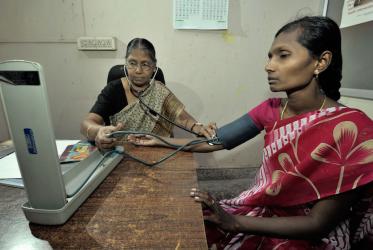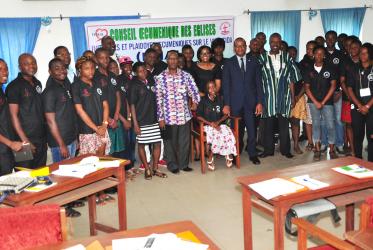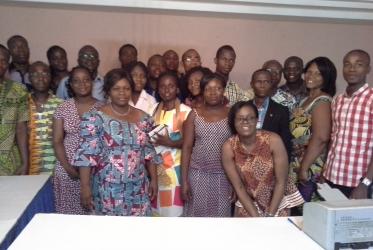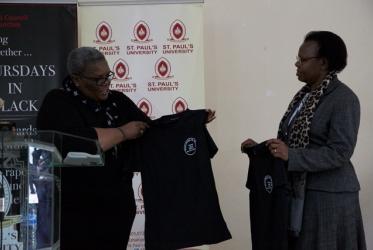Displaying 1 - 15 of 15
07 November 2019
Knowledge of gender roles deepens in Togo
03 June 2019
“Good healthcare a right, not a privilege,” says WCC-EAA
11 October 2017
Youth engagement fundamental to HIV response
18 April 2017
“It’s time to be brave, to form diverse partnerships”
02 March 2017
“Health and healing for all people, that is the challenge”
28 February 2017
Dealing as a church with HIV
13 October 2014
Christian values inspire compassion in addressing HIV
20 September 2013












